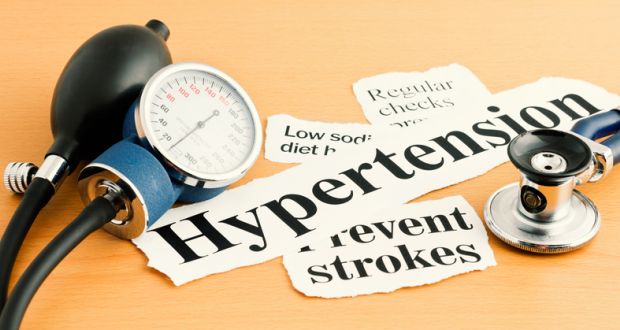High blood pressure is one of the major ailments affecting more than 1.13 billion people across the globe and 200 million only in India. Statistics indicate that the number has almost doubled in the last 40 odd years. The normal blood pressure range is between 80mm Hg diastolic and 140mm Hg systolic. However, due to certain factors, the pressure exceeds the normal levels and the heart is forced to overwork and pump blood through the arteries at higher pressure levels. This condition is known as hypertension.
Hypertension can either be due to primary factors like genetic predisposition and lifestyle or secondary factors like chronic ailments or certain medications such as birth control pills. Primary hypertension accounts for almost 90% to 95% of high BP cases and only 5% to 10% of the cases are due to secondary factors.

How is Obesity linked to High BP?
It has been found that weight plays a significant role in the BP levels of a person. Managing your weight can help in maintaining BP in the normal range to a great extent. Obesity, uneven fat distribution in the abdominal region and sudden weight gain are major contributors to hypertension. According to the Framingham Heart Study, a very famous study linking obesity and high BP, obesity is the reason behind approximately 26% of hypertension cases in men and 28% in women. This is due to the fact that obese people have increased levels of fatty tissue which in turn increases vascular resistance. This puts extra pressure on the heart to pump blood throughout the body thus increasing the BP. Being overweight not only puts extra pressure on the heart leading to cardiovascular ailments but also puts you at a higher risk of contracting other related health issues.

Managing Weight to Maintain BP
If your doctor advises you to lose weight in order to manage your BP levels, you need to make small lifestyle changes to bring it to effect immediately. Following are some ways that can help you reduce weight.
1. Healthy Diet Although it is important to eat a healthy and balanced meal, it is more important to eat at the right time and the right amount. Binge eating or eating food that is high in salt, is cholesterol-rich, or fatty should be avoided. Caffeine, nicotine, and alcohol should be restricted and avoided. You should eat in smaller portions and at smaller intervals of time to enable better digestion and avoid fat deposition in the body. Following the DASH diet regime which promotes healthy eating, reducing salt intake, and eating fruits and vegetables rich in nutrients can help in managing your BP levels.

2. Physical ExerciseGet some physical activity and exercise on a daily basis to burn off unwanted calories. Yoga and pranayama calm your senses, and promote better digestion and physical well-being. Alternatively, you can opt for 30 minutes of a treadmill session or jogging/brisk walking every day.

3. Optimising Stress Levels
High stress promotes anxiety which further results in binge eating or emotional eating habits. This leads to an overload of unwanted calories in the body which then becomes difficult to burn. Too much of stress also leads to hormonal imbalances and therefore, obesity.

4. Getting Adequate Rest Ensure that you get enough sleep every day. If you think you have any sleep-related disorders, it is a good idea to get it checked and treated. Inadequate sleep can lead to anxiety and stress and therefore weight gain.

5. Rigorous Aerobic ActivityA minimum of 30 minutes of vigorous exercise can help you in managing your weight, anxiety disorders, heart health, and BP levels effectively.

In Conclusion
If you are unable to lose weight or have an underlying health problem which is restricting weight loss, it is advisable that you get a consultation from your doctor on alternative means of weight loss. There is also a need to be aware of the root cause of your obesity or weight gain and have a targeted approach to ensure a healthy body and thus, a normal BP level.Disclaimer:The opinions expressed within this article are the personal opinions of the author. NDTV is not responsible for the accuracy, completeness, suitability, or validity of any information on this article. All information is provided on an as-is basis. The information, facts or opinions appearing in the article do not reflect the views of NDTV and NDTV does not assume any responsibility or liability for the same.







